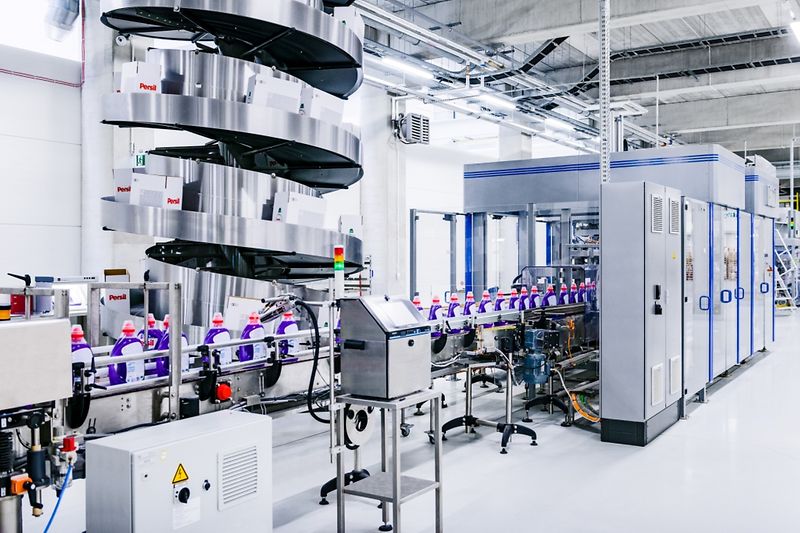Let’s Save Polish Chemical Industry: The critical situation of the Polish chemical market is due to the influx of Russian raw materials and components into the European market.
“It’s our duty as the economic self-government of West Pomeranian Voivodeship to loudly draw attention to the issues threatening job positions and economy in the region. We are receiving unsettling signals from the community concerning the situation of the Police Chemical Plant. We are fully aware that global circumstances caused one of the biggest companies in the region, and at the same time a national giant in the chemical sector, to end up in a difficult situation due to the war in Ukraine. We cannot comprehend letting untested and hard-to-control fertilizers from the east, including those from Russia, infiltrate the Polish market. We must do everything in our power to stop this and rebuild our industry. We are sounding the alarm today,” says Hanna Mojsiuk, President of the North Chamber of Commerce in Szczecin.
“We Must Oppose the Influx of Fertilizers from Outside the European Union into Our Market”.
The appeal by the North Chamber of Commerce in Szczecin is the result of a discussion between its President, Hanna Mojsiuk, acting president of the Grupa Azoty ZCH Police Anna Tarocińska, and the social community, which clearly outlined the problems faced by the chemical giant, one of the significant employers in our region. The problem is that the Polish and European market is being flooded by fertilizers and ingredients for their production from the east. These materials enter Poland through European ports. They are beyond the European Union’s quality control, which results in them being cheaper than those made in Poland.
“For some time, the Grupa Azoty Chemical Plants Police SA has been struggling with a massive problem – the influx of imported fertilizers to Poland, especially from the borders of the east. We notice the influx of compound fertilizers and urea in Polish ports. The producers of nitrogenous fertilizers and compound fertilizers from the eastern side have access to significantly cheaper gas and also have their own cheap raw materials such as: Apatite (source of phosphorus) and Potash salt. Furthermore, their production does not incur environmental charges resulting from a series of EU regulations, which we abide by when paying consideration to environmental protection,” says Anna Tarocińska, temporary CEO of the Grupa Azoty Chemical Plants Police.
Official Eurostat data indicate a very dangerous trend for Polish factories – an increase in fertilizer imports from Russia. In 2022, the total import of urea was 1.008 million tons, of which 154,000 tons came from Russia (15%). Urea import in 2023 was also a significant disappointment for Polish nitrogen fertilizer producers. A total of 1.015 million tons of urea were imported, out of which a whopping 344,000 came from the Russian Federation (33%).
“Polish farmers have no issues accessing fertilizers from Russia or Belarus. The agricultural producer is looking for the cheapest source of nutrients. The further expansion of Russian fertilizer producers in Poland and the European Union is a situation we must oppose while we still have the opportunity,” Stresses Anna Tarocińska.
“We expect the European Union to introduce prohibitive tariffs which will cause products imported from outside the EU to be balanced at costs, we have heavy environmental restrictions, and there are no such restrictions in countries outside the EU. By bringing cheap products to the European Union where EU rules and restrictions are not followed, we can expect production to be based on the same principles as our domestic production,” adds Anna Tarocińska.
The temporary CEO of Grupa Azoty Chemical Plants Police also adds that she expects cooperation on this issue with the Ministry of Agriculture and agencies responsible for the condition of the chemical industry in Poland.
“This is the time to sound the alarm”.
The North Chamber of Commerce in Szczecin supports the appeal of the social community of the Police Chemical Plants to urgently address the regulation of the European Chemical market situation. In the opinion of president Hanna Mojsiuk, we should engage parliamentarians, MEPs, local government officials, and economics authorities in the discussion about how Russian supplies reach the European market despite the embargo.
“As the North Chamber of Commerce, we believe that defending the Police Chemical Plants is our West Pomeranian raison d’être. We have to fight to ensure that the condition of our national companies is as strong as possible. The Chemical Plants are one of the most important employers in the region, and the news about the plant’s condition is not optimistic. We appreciate the commitment of president Anna Tarocińska and declare our full support in action drawing attention to the problems of the Polish industry,” says Hanna Mojsiuk, president of the North Chamber of Commerce in Szczecin.
“This is the time to sound the alarm. Things are happening in the market, which shouldn’t and weaken the condition of one of the region’s main employers. We expect action before it will be necessary, for example, to implement a voluntary leave program or even mass layoffs. I remember how shocking such a situation was for the Chemical Plants in 2011. We cannot let this happen again,” says Hanna Mojsiuk.
